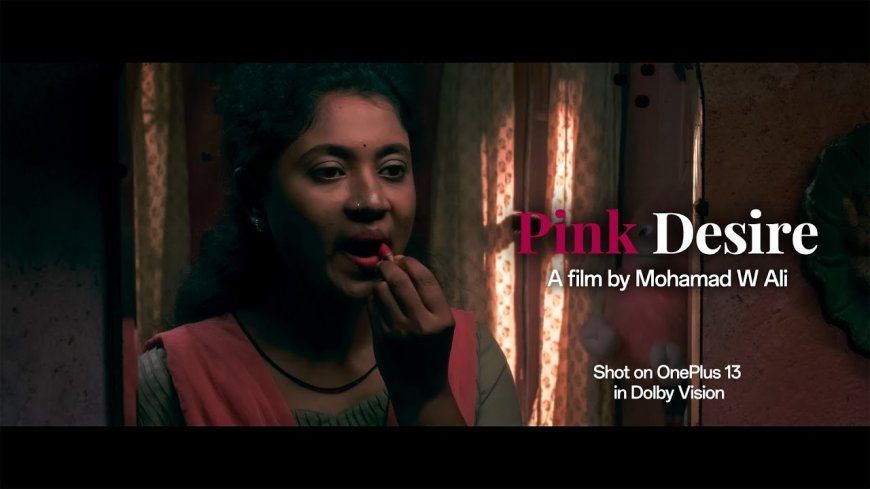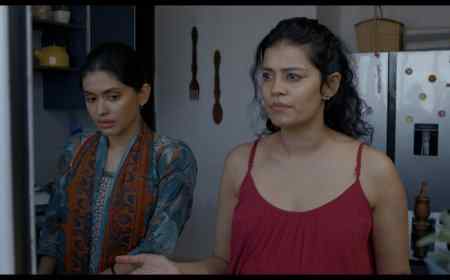Review: Pink Desire (2025)
Dipankar Sarkar provides a review of a beautiful and emotionally charged short film "Pink Desire" by Mohamad W. Ali

In Pink Desire, a starkly beautiful and emotionally charged short film by writer-director Mohamad W. Ali, color is more than an aesthetic touch: it's a philosophical as well as conditional challenge. The story of this intense film follows a thirty-years-old woman standing at a crossroads: a risky surgery that could enable her to perceive the color pink for the first time—or render her blind forever. What appears, initially, to be a story of medical danger is actually an exquisitely calibrated consideration of perception, gender, and the frequently transparent architecture of societal expectation.
The protagonist, Gaura, wants to undergo the surgery despite the risk due to her primal curiosity. Thus, the operation is a metaphor not just for change, but for confrontation: with her own assumptions, and with the unseen rules that have governed her world. Why has the color pink, above all others, been enlisted in the cause of femininity? What does it signify to be informed, either overtly or tacitly, that one can be represented in pastel?. There are no sweeping gestures, no swelling violins to this question in the film. Rather, the film probes the cultural freight being borne by a single color. Pink, here, is neither merely a color; it's a symbol, a battleground, a symbol attached to identity.
Ali's direction is characterized by a form of philosophical patience, the type that relies on the viewers to participate on their terms. He is not inclined to wallow in sentimentality or uplift the narrative. He does not sensationalize the surgery itself but rather lingers in the interstices of it—the moments of hesitation, the risks surrounding it, and how the shards of childhood memories guide the protagonist's longing. These are the places in which the film derives its subliminal power. What makes this film work is not its setup, or dramatic twists, but its insistence on not being coy. The filmmaker is more fascinated by the questions than by their answers. In a way, the film raises serious issues and invites contemplation on seeing, being seen, and observing the unseen elements that influence our lives. It does not create excessive complexity that might make it hard for the audience to believe Uma's journey, so that we can empathize with her situation.
Snigdha Mondol gets into the core of her character with subdued intensity. Her journey is inward, and yet the stakes are existential. Shot on One Plus 13 camera phone, Arnav Laha's cinematography is in tandem with this reserve, framing the screen in deep, muted gray and shadow, a visual replica of the protagonist’s chromatic limitation—and of the reserved emotional palette upon which the film works.
Within its tight runtime, Pink defies melodrama, showing a greater interest in the cerebral and emotionally restrained, employing silence and stillness as expressive modes. Ultimately, it is not a film about sight, but insight. It is a rare, reflective film that addresses its viewers as co-participants in a shared question—one that does not conclude with the last frame, but persists, softly, within us.
Pink Desire is available on YouTube.
****
What's Your Reaction?

































































